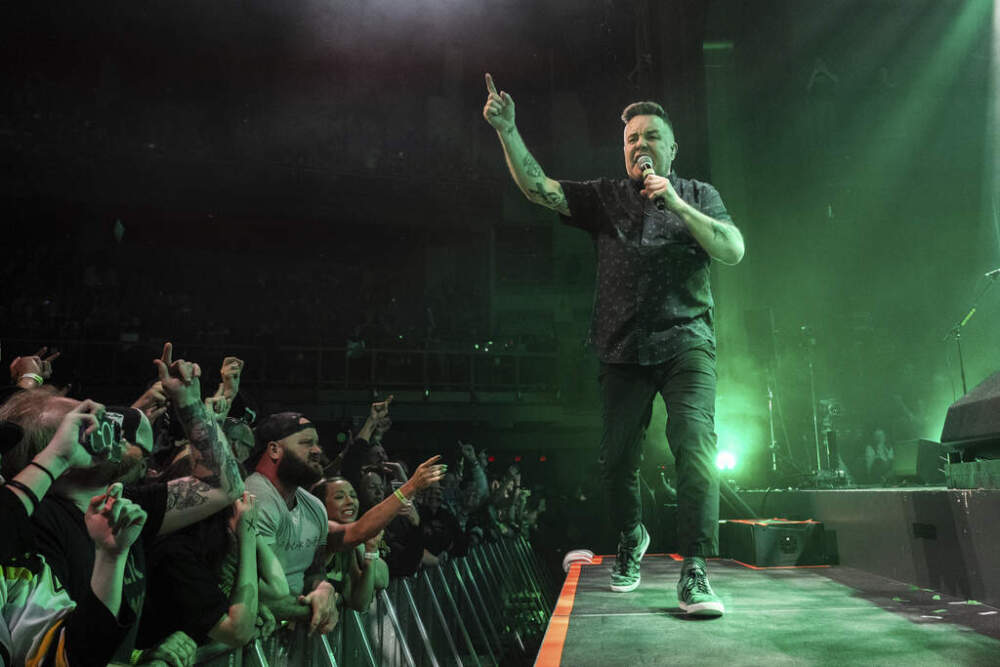The Dropkick Murphys have maintained their band for almost thirty years, and they are known for their strong stances on various issues.
Unlike typical punk bands, their political views are somewhat unconventional. They advocate for labor unions and the working class while also expressing support for police and military personnel, which can create tension with the usual left-leaning punk rock ethos. Surprisingly, they even backed former Republican Governor Charlie Baker during his 2018 reelection campaign.
Recently, frontman Ken Casey has gained attention for voicing his concerns about what he perceives as threats to American democracy stemming from the Trump administration.
I spoke with Casey last week while the band was gearing up for their annual St. Patrick’s Day concerts in Boston, seeking his thoughts on the city’s immigration policies as it finds itself in the national spotlight.
During a recent concert in Clearwater, Florida, a man wearing MAGA attire stood at the front. Casey made a lighthearted bet about whether the man’s “Make America Great Again” shirt was manufactured in the U.S. The crowd erupted in laughter when Casey revealed it was actually made in Nicaragua. He then exchanged it for a Dropkick Murphys shirt that he proudly noted was “made in America.”
After the performance, Casey chatted with the MAGA supporter, saying, “It was cool that you were a good sport about it and honored the bet.” The fan responded, “I’ve been coming to see you for 20 years. You guys are family, and I don’t let politics come between family.” Casey reflected that many people likely share more common ground than politics might suggest.
“I think a lot of us have a lot more in common than politics would make us think.”
Ken Casey
Rios: What message are you hoping to convey? Is it something that features at every show?
Casey: “I don’t plan to say anything; some nights I’m just focused on remembering the lyrics. My main point is that this is a class struggle, not a political one. We’re being misled into fighting amongst ourselves, allowing the ultra-wealthy to exploit us further.”
Rios: Do you face backlash from Trump supporters among your audience?
Casey: “If someone supports Trump, they might accuse me of dividing people. But I argue that I’m not the one implementing the harmful policies; I’m simply speaking out.”
Rios: Do you worry about alienating fans, or have you seen more support due to your public stances?
Casey: “I want to be known as a band that stood up, regardless of whether that helps or hurts us. As we become more vocal, I think more people on the left are inclined to support us, which is great, but ultimately, it reflects who we are.”
Rios: With immigration being a hot topic in politics, how do you feel about Boston being targeted?
Casey: “I understand the need to address crime. But should a hardworking immigrant who is just trying to make a better life be villainized? My view is that if your family came to this country as immigrants for a better life, you should never say that others are unwelcome. That’s the foundation of America.”
“If your family were immigrants to this country and came for a better life, the price you pay for that is you can never say that ‘no one else is welcome.’ That is what America was built on.”
Ken Casey
Rios: How do you feel about recent comments from border officials targeting Boston?
Casey: “We’ll see how that plays out. I’m hopeful I’ll be home when they arrive.”
Rios: Boston is known as a cradle of liberty and a revolutionary city. Do you think it lives up to that legacy today?
Casey: “Yes, I believe so. Though Boston had a reputation for segregation and racism when I grew up, people have come together in the face of oppressive policies from figures like Tom Homan and ICE, signaling they won’t be bullied.”
Rios: How do you view the current political climate and the future of our country?
Casey: “I’m worried about what’s ahead. I’ll manage, but I have concerns for my kids. People might believe that history shows good triumphing in the end, but we can’t assume we’ll just endure these four years and everything will return to normal. There’s a risk that there may not be another election.”
WBUR’s Jesús Marrero-Suárez contributed to this story.



